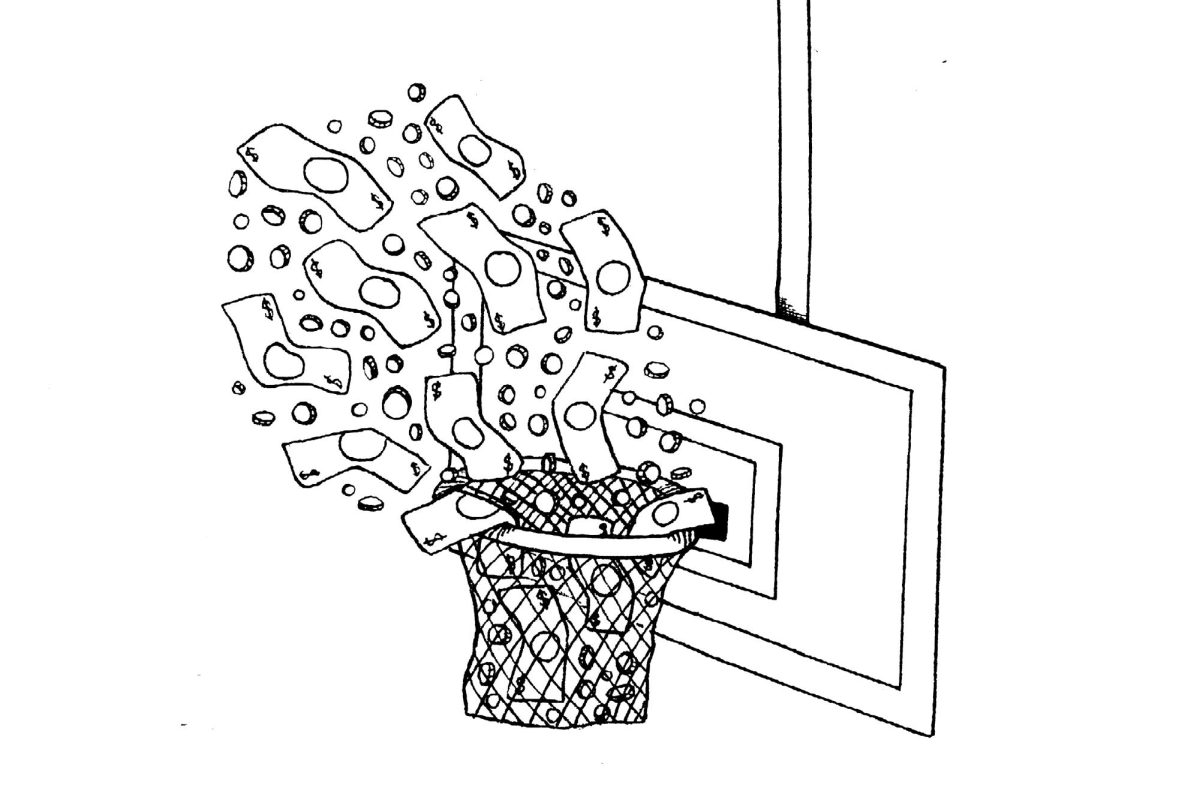Robert Hildebrandt is a doctoral candidate and a course instructor in the Department of Anthropology in the Columbian College of Arts & Sciences.
After facing almost two weeks of student protest in a pro-Palestine encampment, GW had two choices: to sit down and negotiate with student protesters or to react with force. At 3:30 a.m. Wednesday, it chose the latter. By doing so, GW revealed the hollowness of its purported ideals of free speech and security, abrogating its responsibility to safeguard these key values.
GW could have followed many of its peer institutions’ nonviolent models in clearing the encampment. At Brown University, administrators struck a deal with student protest leaders, exchanging the removal of their encampments for a vote on divestment in October. At Northwestern University, administrators disclosed the university’s investment portfolio and allowed students to participate in trustee investment decisions. At Evergreen State College, administrators created an investment policy task force, appointing students to the committees.
In contrast, GW followed the violent model set by Columbia and Emory universities, as well as the universities of Southern California and Texas, Austin where administrators have called upon police to disperse students with force. When students protest again, will GW aim firearms at us like Ohio State University and Indiana University, Bloomington did? Will GW stand by as counterprotesters attack students in the encampment with weapons and ignited fireworks like at University of California, Los Angeles? Will they allow police to then fire into crowds at close range with rubber bullets?
The administration at Columbia tried to silence their students through an initial round of arrests. But students only returned in greater numbers, igniting campus protests worldwide. Students have already returned to protest at GW, growing bolder with each return. They are fueled by the University’s failure to uphold the ideals that students still believe in, even if the administration does not.
While GW officials have finally started meeting with protesters, they have yet to show they are taking students seriously. Officials scheduled a brief 45-minute meeting at a time reserved for Muslims’ Friday prayer, giving students just two hours notice. By doing so, the administration has shown students they are more concerned with the appearance of negotiation than engaging in a productive and meaningful discussion.
Before the meeting even began, administrators told student leaders that GW was unwilling to consider changes to its “endowment investment strategy,” academic partnerships or established Student Rights and Responsibilities processes. The University shut down dialogue before it had even begun, telling students that it is only willing to make superficial changes, not concrete ones.
As such, GW has fundamentally misunderstood the protesters’ goals: Students are not just demanding that their University protects Palestinian rights on campus, they are demanding that it stop financially supporting a war which has lead to the death, starvation, homelessness, torture, humiliation and disability of hundreds of thousands of innocent Palestinians at the hands of the Israeli army and its paramilitary settler groups. These students are following a long tradition of GW student campaigns in solidarity with international liberation movements, including the movements to divest from Apartheid South Africa and to end the American War in Vietnam.
GW’s unwillingness to enter into good-faith negotiations is part of a larger pattern of disregarding pro-Palestinian speech on campus. In 2015, the University required a student to remove a Palestinian flag from his window while allowing other national flags to be displayed. In 2022, Students for Justice in Palestine postered campus spaces in protest against a visiting speaker from the Israeli military. GW responded by leveling disciplinary charges against the group, despite these posters being placed in permitted public spaces. And last October, SJP organized an on-campus vigil for Palestinian civilians killed by Israel’s attack on Gaza. University President Ellen Granberg labeled the event as a “celebration of terrorism,” implying that only Israeli victims of violence were worthy of mourning, not Palestinian ones.
Later that month, SJP projected phrases like “Divestment from Zionist genocide now” on the side of Gelman Library. Despite a GW Police Department officer reportedly permitting the demonstrations initially, administration leaders later decided that the projections violated the University’s Code of Student Conduct. But the University’s response seemed more concerned with the nature of the projection’s speech instead of the fact that it was done inappropriately, with Granberg misrepresenting anti-Zionist speech as “antisemitic.”
Given that SJP, along with its allies in Jewish Voice for Peace, have made it clear to the administration on multiple occasions that they are protesting Zionism, not Judaism, Granberg’s statement shows a malicious attempt to paint these students’ speech not as permitted political discourse but as prohibited hate speech. By wrongly classifying anti-Zionism as antisemitism, GW’s administration has only encouraged counterprotesters, politicians and the police to misrepresent peaceful student protestors at the encampment, many of whom are themselves Jewish, as antisemites. This sort of language only encourages the kinds of racist anti-Palestinian and Islamophobic rhetoric and confrontations that have been rising on campus in the past year.
Students should be allowed to criticize political ideologies, Zionism included, without fear of either disciplinary actions or police force. They have every right, as tuition payers and members of the community, to criticize University policies, including investment decisions.
By calling the police on their own students, administration has lost the trust of GW community members. This trust will be hard to regain, but the school should follow the lead of its peer institutions by sitting down with protest leaders for genuine, good-faith negotiations.


